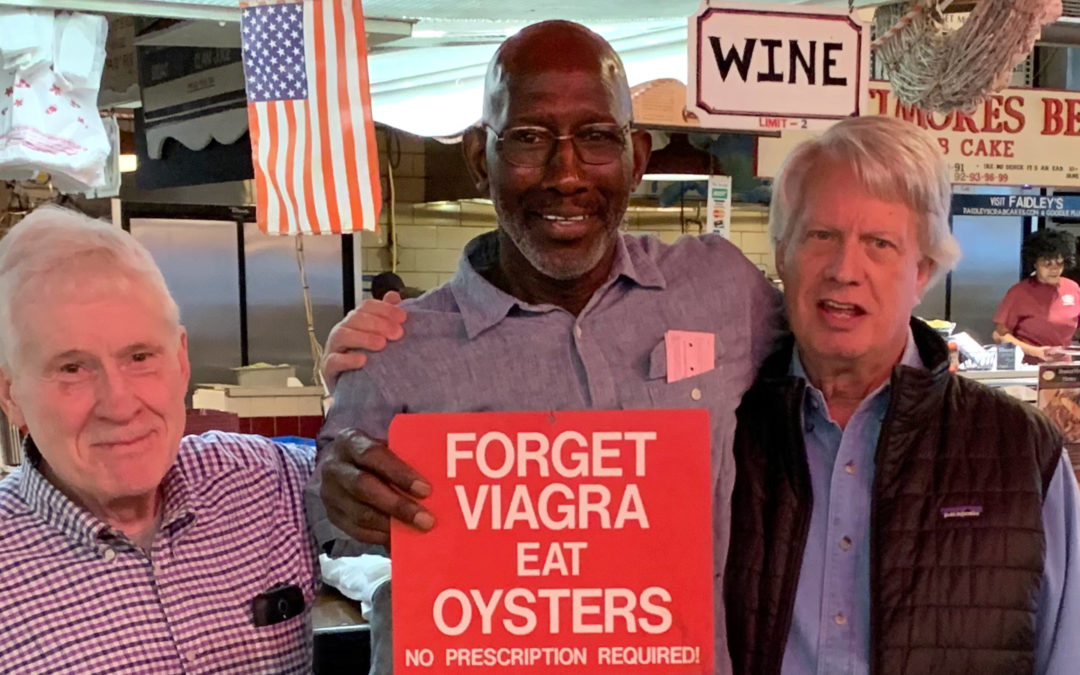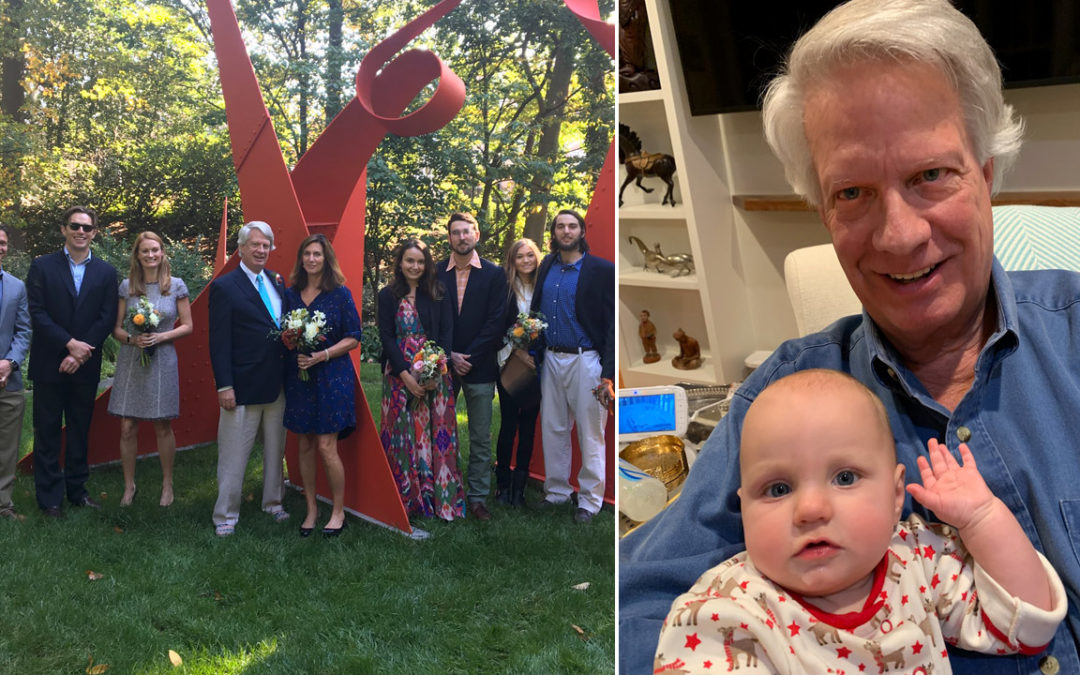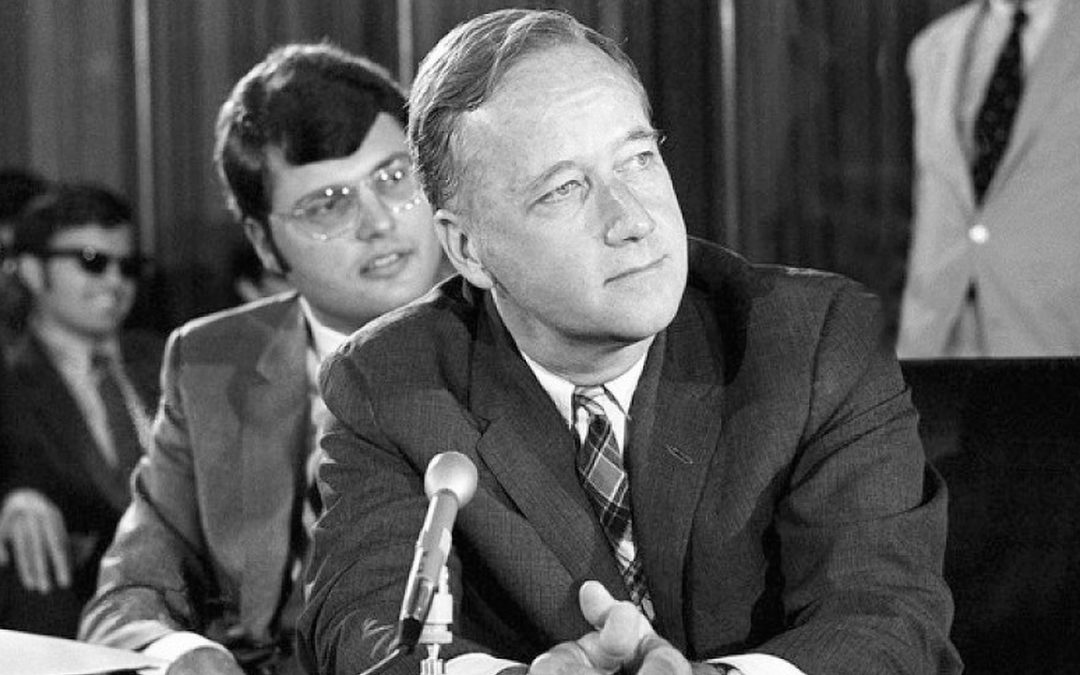
by Robert Bowie, Jr. | Feb 18, 2020 | Featured, Law, News, ONAJE, ONAJE Update, Operetta, Plays, Poetry
Okay, I may have a problem. I am a recovering lawyer and now aspiring playwright and poet. Is it possible that I miss time sheets? “Every six minutes” for a lifetime?
People used to say: “You are what you eat,” but what if you are what you “do” or have done?
Maybe I’m getting worse. At the law firm, I made a rule that if anybody could finish a story that I was telling I would stop telling it.
Now I don’t care. If I can get a second laugh or even a third from the same story I will repeat it, again and again. (And I’m going deaf so I’m the only one who doesn’t have to hear it.) It could be senility. It could be I’ve lost any sense of embarrassment, but it definitely demonstrates no merciful memory loss, at all.
The other thing is, even in retirement I must “work.” I have grown even more intolerant of delay because everything I’ve written should be on stage by now! Damn it!
What has happened to me?
In the past year, I have written or rewritten three plays. One (Onaje) has been produced in New York, two will be produced in New York (Vox Populi, for which I wrote the libretto, and The Grace of God & The Man Machine). Another, The Naked House Painting Society, is looking for a home.
Yes, I used to be impatient as a lawyer but now my stuff is not produced fast enough? Do I still need litigation? The need to measure work on massive conflicts in tight building blocks of measured time along with a new project have made me afraid.
I have started working on a poem based on Dante’s Inferno. Dante’s Inferno has 34 cantos and 23 six-line stanzas in each canto. That in itself was my wake-up call. How sick is this?
The law can definitely create “delusions of grandeur.” Might it also imprint the structured, ordered, anal impact of time sheets?
Is it now that I require 34 cantos and 23 six-line stanzas in each canto? Seriously? But I haven’t given into it yet, I think.
Still, as I started the Prologue and began to “write about what I know,“ I found a schizophrenic litigator’s theme begging for harmony. This is how it starts:
Prologue
With first light, or birth, or perhaps before/
And maybe after, comes the dialogue:/
The debate in the mind. Waves on the shore/
Each overriding the last. No monologue./
Two nagging voices in constant conflict./
One “as doubt“ the other “as hope,“ both spent/
Bickering on some path I did not pick/
Living the daily schedule of events/
As I wake and wonder where each day went:/
The debate in the mind. Waves on the shore/
Each overriding the last. What event,/
What plea, what prayer from my central core,/
What keeper of my life long travel log/
Can cure me of this endless dialogue?/
I start with a sonnet? How sick is this?
T.S. Eliot said:
“evenings, mornings, afternoons,/
I have measured out my like with coffee spoons;”/
And the poor man was just a banker.
Still, it will be funny and too long for me to repeat, so that may be progress.

by Robert Bowie, Jr. | Jan 14, 2020 | Featured, Law
There is only one lawyer I know who will go to heaven — Mike Millemann. He recently wrote a law review article about a theater class aimed at teaching law students how to be better lawyers, which we taught together several years ago at The Carey School of Law at University of Maryland. The class was both bizarre and beautiful.
The students were tentative at first but, by the end, definitely loved it. In almost every case, the students were amazed by a third dimension this class offered to their law school education: compassion as it is embodied by our professional responsibility.
One of the students commented:
“Ten years from now, I am certain that when I am asked to share my most eye-opening class in law school, I will mention this class. It has been a learning experience that no other law school class that I have taken can come close to in comparison.”
The model for the class came from the stories of African American males incarcerated and serving life sentences in Maryland, who were later exonerated because they were determined to be completely innocent.
At the first class, one of these innocent men who had spent most of his life incarcerated under a life sentence, was introduced to the class. He quietly answered the student’s questions, remarkably without anger.
Each of these men had been through hell and had escaped it unexpectedly, and they shared that experience.
Throughout the writing and performing process, the students learned in a way that is completely different than the traditional law school education.
After going through trial transcripts, appellate briefs, the underlying facts and the law of each case, the students wrote a play. They collaborated, they wrote the roles of corrupt prosecutors under public pressure and eager for a conviction and incompetent defense lawyers who took $300 from the family of the defendant and provided only half-day trials in capital cases without prior research or exonerating witnesses. But also, the students wrote the story of the diminished hope and desperation of family members who were in shock by the verdict, and who over time grew despondent about American justice.
And then the students lived the roles which they created as they performed their play before a live audience.
In one case, Michael Austin, who had been recently released and had taught himself music during his incarceration, stayed with us throughout the class and was asked to join a class member at the side of the stage to add musical accompaniment.
In the last scene, the governor of Maryland announced publicly that Michael Austin was to be released. On stage, the student playing Michael Austin was asked: “Are you angry about what has happened to you?”
To the extreme surprise of the audience, Austin, barely noticed previously, took center stage and announced: “I am Michael Austin and I am thankful for the lawyers who accomplished my release and for the efforts of this class and this law school for telling my story.” From the surprise, came tears in the audience.
But more importantly, the class had learned what law school doesn’t teach: that a lawyer, when he or she takes the oath required to be licensed, has a greater responsibility to the society than almost everyone else. The oath is not a license to make money. It is a responsibility to “protect the Constitution” and the democracy in which we live.
The brilliant Elliot Rauh, a founding member of Single Carrot Theatre and I worked together on this class, but the suggestion and support for the project came from Professor Michael Millemann. He is going to heaven for his lifetime commitment to public justice and the unfairly incarcerated, and for this class.
Professor Michael Millemann’s article has already been accepted by one law review for publication and others are expected to express interest. When it is published, I will post where it can be read.
Featured in the photo: Michael Millemann, Michael Austin, Robert Bowie, Jr.

by Robert Bowie, Jr. | Jan 7, 2020 | Featured, Politics
We deserve better than this.
Senator Lindsey Graham just announced that the Senate might change its rules to require Nancy Pelosi to submit the Articles of Impeachment to the Senate so that the Senate can have a trial (and McConnell now claims to have the votes to prohibit testimony and new evidence).
There are two problems with Senator Graham’s analysis.
First, the Constitution won’t allow it. Senator Graham apparently has not read Article 1, Section 2: “The House of Representatives… Shall have the sole power of impeachment.” And Article 1, Section 3: “The Senate shall have the sole power to try all impeachments.”
The House is the prosecutor and the Senate is the jury. So, until Nancy Pelosi decides to present the Articles of Impeachment to the Senate, the Senate can’t do anything but wait.
Second, the situation does not allow it. Every day new evidence comes out that has been withheld by the President and should have been part of the impeachment articles.
The House should reopen the impeachment hearings, subpoena the witnesses and documents, hold those that do not comply in contempt, and wait until they comply.
As I have written previously, the Speaker of the House in an impeachment proceeding has a duty to every citizen of the USA to ensure that the constitutional requirements of an impeachment trial will be carried out before she proceeds to the trial in the Senate. She is the lead prosecutor. That is her duty.
It would be a dereliction of that duty, a violation of the Constitution, and an acquiescence to obstruction of justice to proceed with a trial knowing that the defendant is withholding witnesses and documents, and that the jury has predetermined a verdict of acquittal before the trial begins.
She must wait for the federal courts to enforce the Constitution and order the witnesses appear and the documents be produce and are available for consideration at the trial before the Senate. She must not compromise . She must put the spotlight on the head-on collision between fascist partisan politics and the clear violation of our Constitution . The politicians are in control and we deserve better than this.
The senators will take their oath “of objectivity” and for many the hypocrisy quite possibly can’t be stopped. (It might be fun if the prosecution asks Chief Justice Roberts, the judge in this case, for the right to voir dire the jury to determine if there is pre-existing bias, which should require disqualification of senators who have publicly stated that they have made up their minds and are working for the defendant.) No matter what, however, Pelosi must wait for the federal court’s rulings requiring the testimony of witnesses and production of documents.
We can wait. Time is not the enemy of the country in all of this, but it is the enemy of an obstructionist defendant.
President Trump and Senator McConnell will show their hand if they lambast Pelosi for waiting for a court ruling, because they will show that the court and the delay is what they really fear.
They want to force a vote by a biased jury so they can declare victory in the President’s campaign. But if they are forced to wait, and they lose in the courts (as they will) before or even after the election, they will not be able to sweep their obstruction under the rug. It will be a historical record. It will be irrefutable.
Time is not the enemy! Given the time and a chance to talk together, more people will have a chance to understand and get it right. Nixon was elected by every state of the union except Massachusetts. Two years later, he resigned when it became clear he was about to be impeached by a bipartisan vote.
So, in fact, time and the Federal Courts are Pelosi’s ally. The more she waits out the storm and requires that the Constitution be respected, the more President Trump and Senator McConnell will be punished for their stonewalling and other violations when the courts rule against them.
Even though it is presently unsubstantiated, I fear that the President may attempt to use a foreign conflict to unify the country to avoid further focus on the impeachment. If that turns out to be true, that would be both frightening and further grounds for impeachment.
This must not be about election politics. It is about whether we can hold on to our Constitution and who we are as a country.
The question is: Does Pelosi have the guts to withstand the storm and represent all the people of the United States, not just the Democrats?
These are horrible times for all of us. The politicians must not control and divide us. We deserve all the facts and an unbiased jury. We are all Americans and a fair trial is the very heart of what keeps us free.

by Robert Bowie, Jr. | Dec 31, 2019 | Featured, Law, Politics
Regardless of how partisan things seem, Nancy Pelosi’s duties no longer run exclusively to the Democratic Party.
As Speaker of the House in an impeachment proceeding, she has a duty to every citizen of the USA to ensure that the constitutional requirements of an impeachment trial be carried out before she proceeds to the trial in the Senate. She is the lead prosecutor. She is an officer of that court.
It would be a dereliction of her duty, a violation of the Constitution, and an acquiescence to obstruction of justice to proceed with a trial knowing that the defendant is withholding witnesses and documents, and that the jury has predetermined a verdict of acquittal before the trial begins.
She must wait for the federal courts to enforce the Constitution. She must not compromise for anything less. She must put the spotlight on the head-on collision between fascist partisan politics and the clear violation of our Constitution, and have the Federal Courts confirm the Constitution and her protection of it.
The senators will take their oath “of objectivity” and for many the hypocrisy quite possibly can’t be stopped. (It might be fun if the prosecution asks Chief Justice Roberts, the judge in this case, for the right to voir dire the jury to determine if there is pre-existing bias, which should require disqualification of senators who have publicly stated that they have made up their minds and are working for the defendant.) No matter what, however, Pelosi must wait for the federal court’s rulings requiring the testimony of witnesses and production of documents.
Time is not the enemy of the country in all of this, but it is the enemy of an obstructionist defendant.
President Trump and Senator McConnell will show their hand if they lambast Pelosi for waiting for a court ruling, because they will show that the court and the delay is what they really fear.
They want to force a vote by a biased jury so they can declare victory in the President’s campaign. But if they are forced to wait, and they lose in the courts (as they will) before or even after the election, they will not be able to sweep their obstruction under the rug. It will be a historical record. It will be irrefutable.
No, time is not the enemy! Given the time and a chance to talk together, more people will have a chance to understand and get it right. Nixon was elected by every state of the union except Massachusetts. Two years later, he resigned when it became clear he was about to be impeached by a bipartisan vote.
So, in fact, time and the Federal Courts are Pelosi’s ally. The more she waits out the storm and requires that the Constitution be respected, the more President Trump and Senator McConnell will be punished for their stonewalling and other violations when the courts rule against them.
It is not about the election. It is about whether we can hold on to our Constitution and who we are as a country.
The question is: Does Pelosi have the guts to withstand the storm and represent all the people of the United States, not just the Democrats?
No guts, no glory, Nancy. Weakness won’t work. “Oh, say can you see?” We will see soon enough.

by Robert Bowie, Jr. | Dec 17, 2019 | Featured, Plays, Poetry
Perhaps because I am older, or perhaps because I am now a playwright and a recovering lawyer, I decided I would make a commitment to a more spiritual Christmas this year.
I committed to finding a passage out of the comfortable consumerism, “Jingle Bell Rock” on the radio, Alvin and the Chipmunks and the hula hoop, and into a less self-deceptive and more spiritually aware holiday.
My problem is I excel at self-deception.
In the past, I have always believed that I was sufficiently into the festivities to fool myself, and I would let the transformative spiritual moment gently pass.
No, in truth I am a wizard of self-deception.
I fool myself in little ways all year long as I artfully keep my “spirituality” — like my “modesty“ — at bay.
For example, I have a room right next to my study that contains the framed memorials of the important accomplishments (of which I am so very proud) from my life as a lawyer and playwright.
When I enter this room, I am reminded that I don’t take myself too seriously, because it also contains a sink, a toilet and extra toilet paper. But of course, it is not a private bathroom. If nature calls, our guests are forced to see what I am proud to believe I have made of myself, framed and on the walls when they lock the bathroom door behind them.
I have employed this same gift of willfulness and self-deception when I have prepared myself to let the holidays gently pass by each year.
But as I have said, I think things have changed now that I’m a playwright and recovering lawyer.
I have been forced to see things less as an advocate and more as an observer.
A judge or jury renders a verdict, but there is no redemptive celebration thereafter. Rectifying and resolving social wrongs, if that happens at all, offers no thought of spirituality and in my case, may regrettably explain the bathroom.
But as a playwright, I have come to observe that my plays are meaningless unless the actors commit to giving them life and the audience commits to embracing the performance and the work.
So I have observed that some ethereal things do not come to pass at all unless there is belief, commitment, and then action.
This year, I will find the time for that individual commitment and action on Christmas Day. After I celebrate the joy of being with my family, I will take a walk — perhaps just a little walk — out by myself alone and consider the universe, which I do not understand. I’ll stop for a moment and realize that even if I have no belief in a heaven or a hell, I accept that cold hand of “grace,” which is what so much of religion and spiritual faith is about. And then when I return back home, I’ll try not to see if anyone is locked and reading in the bathroom.

by Robert Bowie, Jr. | Dec 10, 2019 | Featured, Politics
Today, I am mourning a Republican U.S. Senator that I was fortunate to know and serve during the impeachment proceedings of Richard Nixon. I must be wrong.
As the Republican-controlled United States Senate will soon consider impeachment, I have grown horrified by the contrast between what I thought I remembered and what I see today. I must be wrong.
So I went back and reread Senator Charles “Mac” Mathias’s obituary to check my recollection. I will quote the obituary from The New York Times below:
“In a 1974 campaign speech [Mathias] quoted Burke’s 1774 letter to the Electors of Bristol: ‘Your representative owes you, not his industry only, but his judgment; and he betrays instead of serving you if he sacrifices it to your opinion.’”
I thought I remembered that Mathias believed he served the constitution rather than a political party and did not hesitate to practice these beliefs and defend them publicly:
“I’m not all that liberal,” he told The Washington Post in 1974. “In fact, in some respects I’m conservative. A while ago I introduced a bill preserving the guarantees of the Bill of Rights by prohibiting warrantless wiretaps. I suppose they’ll say it’s another liberal effort, but it’s as conservative as you can get. It’s conserving the Constitution.”
I remembered that Mathias exercised these beliefs often at his own expense.
“However he described them, his votes, his vocal unhappiness with the growing conservatism of the Republican Party and his lack of support for Ronald Reagan cost him leadership positions. In 1979, Senator Strom Thurmond maneuvered to block Mr. Mathias from becoming senior Republican on the Judiciary Committee.”
Although he desperately wanted to be the chair of the Senate Judiciary Committee, he saw his responsibilities to serve a greater bipartisan agenda.
“His Senate colleague for many years, Paul Sarbanes, Democrat of Maryland, said Monday that while Mr. Mathias’s ‘most intense critics were within his own party,’ nevertheless ‘Mac commanded enormous respect on both sides of the aisle.’”
Mathias practiced the clear intent of the Constitution, unlike the recent Republican appointees to the Supreme Court who affirmed Citizens United and refused to address the political polarization of gerrymandering.
“Mathias advocated public financing of campaigns and ceilings on contributions (measures enacted the next year). He said that in his 1974 campaign he would reject cash contributions, take no more than $100 from any individual, report every contribution and expenditure”
My recollection was correct.
All that is gone now. The strict constructionist of the Constitution will cite the clear definition of treason, which requires aiding and abetting the enemy at the time of war, and will think nothing of a President and political party that will not impeach a president for turning foreign affairs to his political benefit, who refuses to fight and actually encourages the support and intervention of foreign governments in our elections.
All that is gone now, as our foreign policies, so carefully crafted after WWII to support the allies of freedom, crumble as we abandon the Kurds to Russia, and our allies in South Korea and Japan to the threat of North Korea, as it continues missile testing despite hollow promises to us. And finally, and perhaps most painfully, Europe turns to others as we let NATO and the European Union crumble before our blind eyes.
The Republicans will let the impeachment fail. But if the country gives this president another term, America, a shining “city on a hill,” will be gone as we know it.






